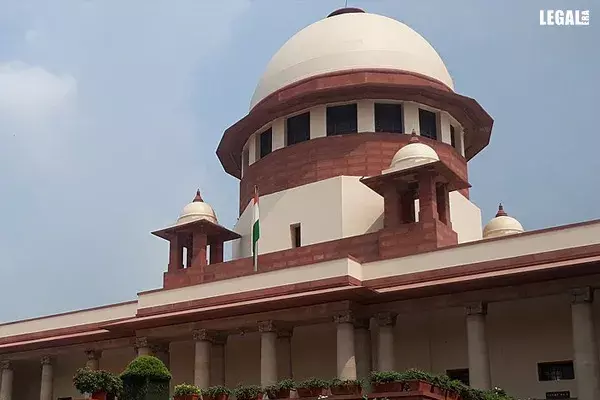Supreme Court Rules On Method For Converting Foreign Currency Arbitral Awards To Indian Currency
In a landmark decision on International Commercial Arbitration, the Supreme Court has addressed two crucial issues regarding;

Supreme Court Rules On Method For Converting Foreign Currency Arbitral Awards To Indian Currency
In a landmark decision on International Commercial Arbitration, the Supreme Court has addressed two crucial issues regarding the enforcement of arbitral awards expressed in foreign currency and their conversion to Indian rupees.
The Court's first question was regarding the appropriate date to determine the foreign exchange rate for converting an award amount from foreign currency to Indian rupees. The Court held that the relevant date for determining the conversion rate is when the arbitral award becomes enforceable, which is from the date on which objections against its enforceability are finally resolved. The bench, comprising Justices PS Narasimha and Aravind Kumar, stated:
“The statutory scheme of the Act makes a foreign arbitral award enforceable when the objections against it are finally decided. Therefore, as per the Act and the principle in Forasol (supra), the relevant date for determining the conversion rate of a foreign award expressed in foreign currency is the date when the award becomes enforceable,” the bench comprising Justices PS Narasimha and Aravind Kumar answered.
The Court referred to the case of Forasol v. Oil and Natural Gas Commission, where it was established that the proper date for determining the currency exchange rate is when the arbitral award becomes enforceable.
“Hence, the date on which the objections are finally decided and dismissed would be the proper date for determining the exchange rate to convert an amount expressed in foreign currency,” the court said, referring to the Forasol case.
The second question concerned the date of conversion when the award debtor deposits an amount before the court during the pendency of proceedings challenging the award. The Court ruled that if the award holder withdraws a deposited amount, the conversion of the award from foreign currency to Indian currency should be based on the date of the deposit.
“When the award debtor deposits an amount before the court during the pendency of objections and the award holder is permitted to withdraw the same, even if against the requirement of security, this deposited amount must be converted as on the date of the deposit,” the court answered. the Court ruled.
However, the Court clarified that once the award holder withdraws the deposited amount, the exchange rate for the remaining award amount to be paid in the future will be determined based on the date when the arbitral award becomes enforceable.
“After the conversion of the deposited amount, the same must be adjusted against the remaining amount of principal and interest pending under the arbitral award. This remaining amount must be converted on the date when the arbitral award becomes enforceable, i.e., when the objections against it are finally decided,” the Court explained.
In the case at hand, the respondent/award holder had not withdrawn the partial award amount of ₹7.5 crores deposited in 2010. Therefore, it claimed that the currency exchange rate should be determined based on the date of enforcement of the award for the entire amount, not on the date of the deposit.
Rejecting this argument, the Court held that regardless of the respondent's failure to withdraw the deposited amount, the conversion rate for the ₹7.5 crores should be based on the date of deposit (22.10.2010).
“We therefore hold that the deposit of Rs. 7.5 crores stands converted as on the date of deposit (22.10.2010), when the rate of exchange as submitted by the appellants is 1 euro = Rs. 59.17. We also reject the submission by Mr. Mahajan that the respondent was unable to furnish a bank guarantee of an Indian bank. This argument is only to serve its own interest to be able to benefit from a higher exchange rate but does not address the principle that operates while enforcing a sum expressed in foreign currency," Justice PS Narasimha said.
“It is important to appreciate the consequence and effect of deposit during the pendency of proceedings to understand the need to convert this amount on that date. Through a deposit, the award debtor parts with the money on that date and provides the benefit of that amount to the award holder. Provided that the award holder is permitted to withdraw this amount, it can convert, utilize, and benefit from the same at that point in time. Considering that the deposited amount is to the benefit of the award holder, it would be inequitable and unjust to hold that the amount does not stand converted on the date of its deposit,” the court added.

